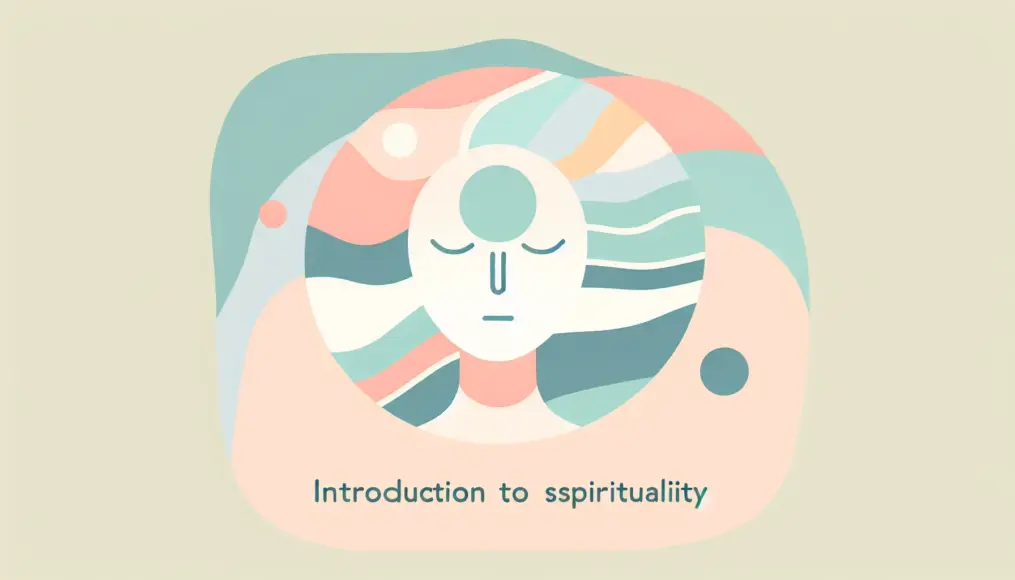When you feel a tightness in your chest, it often seems like something is stuck in your heart. Our emotions and stress can sometimes manifest physically, leaving us with a sensation of pressure in our chest. In such moments, exploring the situation from a spiritual standpoint might help you regain a sense of lightness.
In this article, we will delve into the reasons behind that heavy feeling in your chest and discuss spiritual methods to alleviate it. By fostering emotional growth and deepening self-understanding, you can discover ways to tap into your inner strength.
- What does it mean to feel a tightness in your chest from a spiritual perspective?
- The impact of stress and emotional repression
- Practical approaches through meditation and emotional release workshops
What Does It Mean to Feel a Tightness in Your Chest?
Feeling a tightness in your chest is something many people experience. This sensation is often closely linked to our mental state, stress, and emotions. Particularly when we’re holding onto something or feeling overwhelmed, the feeling of pressure in the chest can become quite pronounced. Exploring this sensation from a spiritual perspective might offer some insights into emotional release and healing. In this section, we’ll delve into a basic understanding of chest tightness and introduce interpretations from a spiritual viewpoint.
Understanding Chest Tightness
The feeling of chest tightness often stems from not just physical issues but also psychological factors. For instance, stress, anxiety, and tension can manifest physically, leading to a sense of constriction around the chest area. In such cases, your body may be signaling that “something isn’t right.”
Additionally, if you’re suppressing emotions, this can lead to discomfort in the chest. When we can’t express our feelings, our body reacts. By gaining this understanding, it becomes easier to identify the source of that tightness.
- Chest tightness is often linked to psychological factors.
- Stress and anxiety can affect the body.
- Suppressed emotions can cause discomfort.
Interpretations from a Spiritual Perspective
From a spiritual standpoint, chest tightness can be seen as a sign that the flow of energy is blocked. When we’re holding onto something internally, that energy can accumulate in the chest, resulting in a feeling of pressure. To alleviate this state, it’s essential to release the emotions and stress that are being held inside.
Engaging in spiritual practices can help you reconnect with yourself and listen to your inner voice, which may reduce the feeling of tightness in your chest. Techniques such as meditation, breathing exercises, and emotional release workshops can assist in improving your mental state and facilitating a smoother flow of energy.
- A spiritual perspective attributes chest tightness to blocked energy.
- Releasing emotions and stress is crucial.
- Meditation and breathing exercises can improve mental well-being.
The Emotional Issues Behind Chest Discomfort
Often, the feeling of tightness or discomfort in the chest can be linked to emotional problems. Factors like stress, anxiety, and repressed emotions can contribute to that heavy sensation. In this section, we’ll explore how our mental state affects chest discomfort. Understanding these emotional issues might help you learn more about yourself and take the first step toward feeling liberated.
The Connection Between Stress and Anxiety
Stress and anxiety significantly impact our daily lives. When we face various pressures from work, relationships, or life changes, it’s common to feel overwhelmed. This persistent state can lead to an increase in feelings of chest discomfort.
When our minds are tense, our bodies often react by tightening up, which can result in a feeling of pressure in the chest. Ignoring stress can lead to more significant issues down the line, so it’s crucial to recognize your mental state.
- Stress affects our daily lives
- Mental tension can cause chest discomfort
- Ignoring stress can lead to bigger problems
The Impact of Repressed Emotions
At times, we find ourselves suppressing our emotions. Negative feelings like sadness, anger, or fear can manifest as chest discomfort when we can’t express them. By holding these emotions back, we disrupt the balance between our mind and body, causing energy to stagnate.
If this state persists, you may find yourself feeling increasingly fatigued both mentally and physically, intensifying that sensation of pressure in your chest. Releasing these emotions can help restore a sense of lightness to your mind, so it’s essential to start paying attention to how you feel.

If you found this article intriguing, you might also enjoy “Say Goodbye to Unpleasant Feelings! Spiritual Ways to Free Your Mind.” This piece delves into how releasing emotions contributes to mental well-being and offers practical tips for promoting personal growth.
- Repressed emotions can lead to chest discomfort
- Suppressed feelings affect both mind and body
- Releasing emotions can help regain a sense of lightness
Spiritual Approaches to Finding Relief
When you feel a heaviness in your chest, finding emotional release is crucial. By embracing a spiritual approach, you can help align the flow of your inner energy and lighten your heart. In this section, we’ll explore specific methods such as meditation, breathing exercises, and workshops focused on emotional release, offering you tips to heal yourself. Through these practices, let’s discover a path to alleviate that chest discomfort together.
Practicing Meditation and Breathing Techniques
Meditation and breathing techniques are excellent ways to calm the mind and facilitate the smooth flow of energy. Especially when you’re experiencing chest tightness, being mindful of your breath can help ease tension and create a state of relaxation. Taking deep breaths allows oxygen to circulate throughout your body, and you’ll likely feel your mind begin to settle.
Additionally, engaging in meditation gives you the opportunity to turn your attention inward. Find a quiet space, close your eyes, and listen to the inner voice of your heart. By focusing your awareness on your chest, the root cause of your discomfort may become more apparent. Incorporating these practices into your daily routine can help maintain your emotional stability.
- Meditation and breathing techniques calm the mind
- Deep breathing creates a relaxed state
- Taking time to look inward helps you understand yourself better
Workshops for Emotional Release
Emotional release workshops can be an effective way to ease that heavy feeling in your chest. Often, people tend to suppress their emotions, but these workshops provide a safe space to express them. Spending time with others can foster empathy and understanding, alleviating feelings of loneliness.
Workshops incorporate various techniques, such as art therapy, expressive movement, and group discussions. Through these activities, you can release pent-up emotions and clear the mental fog. By embracing your feelings, you can expect to find some relief from that chest tightness.
- Emotional release workshops are an effective tool
- They provide a space for empathy and understanding
- They help in releasing suppressed emotions
Nurturing Emotional Growth and Self-Understanding
Feeling a tightness in your chest can sometimes signal a unique opportunity for personal growth and deeper self-understanding. By exploring your inner self more thoroughly, you can smooth out the flow of your emotions and reclaim a sense of lightness in your heart. In this section, we’ll discuss the power of journaling as a tool for self-discovery, along with steps to tap into your inner strength. Through these practices, we aim to foster your emotional growth and help you lead a richer life.
Journaling for Self-Discovery
Journaling is a fantastic way to articulate your feelings and thoughts, helping you to gain a better understanding of yourself. By setting aside a bit of time each day to write down what you’re feeling and thinking, you’ll likely notice a sense of clarity emerging from the mental fog. This practice can be especially effective for exploring the reasons behind that tightness in your chest.
Putting your thoughts into words allows you to view your emotions and circumstances from a more objective perspective, often revealing feelings and thoughts you may not have recognized before. This process can deepen your self-understanding and help alleviate emotional pain. So, consider incorporating journaling into your daily routine.
- Journaling aids in deepening self-understanding
- Articulating feelings and thoughts helps clarify emotions
- It provides a way to recognize your feelings
Steps to Unleash Your Inner Strength
To unlock your inner strength, it’s crucial to confront yourself and boost your self-esteem. Start by identifying when you feel most fulfilled and, conversely, the moments that leave you feeling distressed. Understanding your strengths and interests can naturally foster a sense of confidence.
Additionally, maintaining a positive inner dialogue is essential. By treating yourself kindly and accepting your feelings, you nurture your inner strength. As you become more confident in expressing yourself, the tightness in your chest will gradually ease. Valuing yourself is key to your emotional growth.
- Boosting self-esteem helps unleash inner strength
- Identifying your strengths and interests is vital
- Positive self-talk contributes to emotional growth
Conclusion
Feeling a tightness in your chest is a common sign that many people experience when it comes to emotional distress. Often, this discomfort is linked to stress, anxiety, or suppressed emotions. Incorporating a spiritual perspective into your coping strategies can help you regain a sense of lightness in your heart. By practicing meditation, engaging in breathing exercises, and participating in emotional release workshops, you can deepen your self-understanding and unlock your inner strength.
As you nurture your emotional growth and enhance your self-awareness, you’ll start to see a path toward alleviating that chest tightness. By paying attention to your feelings and integrating spiritual practices into your daily life, you can improve your emotional state. Why not take the first step toward a lighter heart and a more fulfilling life?
- Chest tightness is a sign of emotional distress
- A spiritual approach can help alleviate this discomfort
- Self-awareness and emotional growth can ease chest tightness
Start your journey toward reclaiming emotional lightness today. I’d love to hear about your experiences or thoughts in the comments!


Comment